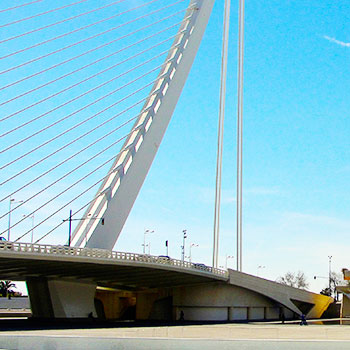Digital Journalism & Communication: Blogging & Storytelling in the 21st Century
Business, Design & Innovation Program
Barcelona, Spain
Dates: 1/3/25 - 4/26/25

Digital Journalism & Communication: Blogging & Storytelling in the 21st Century
OVERVIEW
CEA CAPA Partner Institution: CEA CAPA Barcelona Center
Location: Barcelona, Spain
Primary Subject Area: Journalism
Other Subject Area: Communication, Media Studies
Instruction in: English
Course Code: JRN361BCN
Transcript Source: University of New Haven
Course Details: Level 300
Recommended Semester Credits: 3
Contact Hours: 45
Prerequisites: None
DESCRIPTION
In recent years, the consolidation of digital technologies has led to the radical transformation of journalism. Blogs and podcasts are now part of the contemporary media landscape alongside more personal forms of on-line communication like live streaming; mobile journalism; virtual and augmented reality; and several social network tools like Facebook, Twitter, Instagram, Snapchat, or YouTube. Cross-cutting content and formats is what leads a new generation of storytelling focused on stories that can be read, listened to, and watched, all at the same time. That's why every story needs to be explained in an attractive and appropriate format, channel, or narrative. But the biggest change is that information and stories are no longer unidirectional. As Tom Foremsky explained some years ago, "every company is now a media company," and in that same sense, every journalist and professional of any discipline can become a relevant and respected storyteller. We can all become our own "media outlet". To explore this concept, you will analyze how politics, marketing and PR professionals, and corporations are investing more and more in "journalistic" style communications to reach bigger and better audiences.
This course aims to explore the "me-journalism" phenomenon through examining greater user participation, active content consumption, permanent feedback, the creation of highly specialized audiences, new formats, and the regaining of the information initiative.
The theoretical content of the course will be complemented at a practical level by practical exercises in Mobile Journalism, the creation and maintenance of a blog (Wordpress), other 2.0 tools, and the creation of a podcast, all under the supervision of the course instructor. You learn how traditional journalism is changing and how social media tools can help anyone promote, inform, or build a new brand.
**This course was previously titled:
Journalism 2.0
Journalism 2.0: Communication & Blogging in the 21st Century
This course aims to explore the "me-journalism" phenomenon through examining greater user participation, active content consumption, permanent feedback, the creation of highly specialized audiences, new formats, and the regaining of the information initiative.
The theoretical content of the course will be complemented at a practical level by practical exercises in Mobile Journalism, the creation and maintenance of a blog (Wordpress), other 2.0 tools, and the creation of a podcast, all under the supervision of the course instructor. You learn how traditional journalism is changing and how social media tools can help anyone promote, inform, or build a new brand.
**This course was previously titled:
Journalism 2.0
Journalism 2.0: Communication & Blogging in the 21st Century







